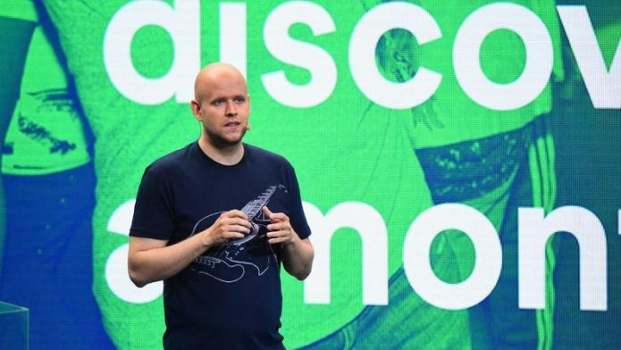Swedish music streaming company Spotify listed its shares on the public market for the first time Tuesday as it started trading under SPOT on the New York Stock Exchange.
Shares initially ‘popped’ up to $165 (on opening, way above its guide price of $132. They soon fell back a bit to $149 a share, and then down to $145 Wednesday, making it worth about $25 billion.
The popular music streaming service took an unusual route to initial public offering (IPO), opting for a direct listing. This is where the company doesn’t issue new shares or seek to raise money through the process of going public, instead it gives existing shareholders the option to sell their shares to the public. It also helps avoid the price of paying for an underwriter.
This is a particularly attractive strategy for companies swimming in private funding, and could signal a viable approach for a number of other tech unicorns.
For context, that’s around the same figures generated by Snap Inc’s IPO, which saw the social media company valued at $28 billion at the close of its first day of trading last year. However its market cap has fallen dramatically since to nearer $19 billion. Twitter was valued at $24 billion after a good first day back in 2013 and then fell to nearer $21 billion.
The other big tech IPO of the year so far was Dropbox last month, which opened at $21 a share on the Nasdaq exchange – just above its expected price of $18-20. Dropbox ended the day of trading with a market valuation of around $9 billion.
Spotify generated revenue of €4.09 billion (£3.57 billion) last year, up from €2.95 billion (£2.57 billion) the year prior, for growth of 39%. The company’s losses, however, more than doubled, reaching €1.24 billion in 2017 versus €539 million in 2016.
Spotify has around 36% of the nascent but growing music streaming market worldwide, according to Statista. Its biggest rivals are Apple Music – which dominates the digital downloads market – Amazon, Google, and smaller streaming services like the French company Deezer and Pandora and Jay Z’s Tidal in the US.
None have established a solid business model though, relying on a ‘freemium’ approach with the hope of converting non-paying customers into subscribers. Spotify claims that with scale it can start to negotiate better with music labels to get artists a better deal, as they still see minimal returns on streams, with the average per stream payout coming between $0.006 and $0.0084.
IDG News Service








Subscribers 0
Fans 0
Followers 0
Followers